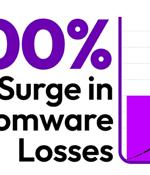Security News

Microsoft warned Entra global admins on Thursday to enable multi-factor authentication (MFA) for their tenants until October 15 to ensure users don't lose access to admin portals. [...]

A month after incident response giant Mandiant suggested the litany of data thefts linked to Snowflake account intrusions had the common component of lacking multi-factor authentication controls, the cloud storage and data analytics company is offering a mandatory MFA option to admins. The general availability of Snowflake Trust Center was also announced concurrently - a framework for customers to monitor compliance with the MFA policies Snowflake hopes will be applied more broadly.

Twilio has confirmed that an unsecured API endpoint allowed threat actors to verify the phone numbers of millions of Authy multi-factor authentication users, potentially making them vulnerable to SMS phishing and SIM swapping attacks. In late June, a threat actor named ShinyHunters leaked a CSV text file containing what they claim are 33 million phone numbers registered with the Authy service.

The cybersecurity threat landscape has witnessed a dramatic and alarming rise in the average ransomware payment, an increase exceeding 500%. Sophos, a global leader in cybersecurity, revealed in...

A scathing report by Australia's Information Commissioner details how misconfigurations and missed alerts allowed a hacker to breach Medibank and steal data from over 9 million people. In October 2022, Australian health insurance provider Medibank disclosed that it had suffered a cyberattack that disrupted the company's operations.

The 2022 Medibank data breach / extortion attack perpetrated by the REvil ransomware group started by the attackers leveraging login credentials stolen from a private computer of an employee of a Medibank's IT contractor. According to a statement by the Australian Information Commissioner filed with the Federal Court of Australia, the credentials were stolen by way of infostealer malware, after that employee "Saved his Medibank username and password for a number of Medibank accounts to his personal internet browser profile on the work computer he used to provide IT services to Medibank", and then signed into his internet browser profile on his personal computer.

Your profile can be used to present content that appears more relevant based on your possible interests, such as by adapting the order in which content is shown to you, so that it is even easier for you to find content that matches your interests. Content presented to you on this service can be based on your content personalisation profiles, which can reflect your activity on this or other services, possible interests and personal aspects.

As announced last October, the internet company reminds us that 'root' AWS accounts must enable MFA by the end of July 2024. Passkeys on AWS. FIDO2 passkeys are physical or software-based authentication solutions that leverage public key cryptography to sign a challenge sent by the server used for verifying the authentication attempt.

Your profile can be used to present content that appears more relevant based on your possible interests, such as by adapting the order in which content is shown to you, so that it is even easier for you to find content that matches your interests. Content presented to you on this service can be based on your content personalisation profiles, which can reflect your activity on this or other services, possible interests and personal aspects.

Your profile can be used to present content that appears more relevant based on your possible interests, such as by adapting the order in which content is shown to you, so that it is even easier for you to find content that matches your interests. Content presented to you on this service can be based on your content personalisation profiles, which can reflect your activity on this or other services, possible interests and personal aspects.